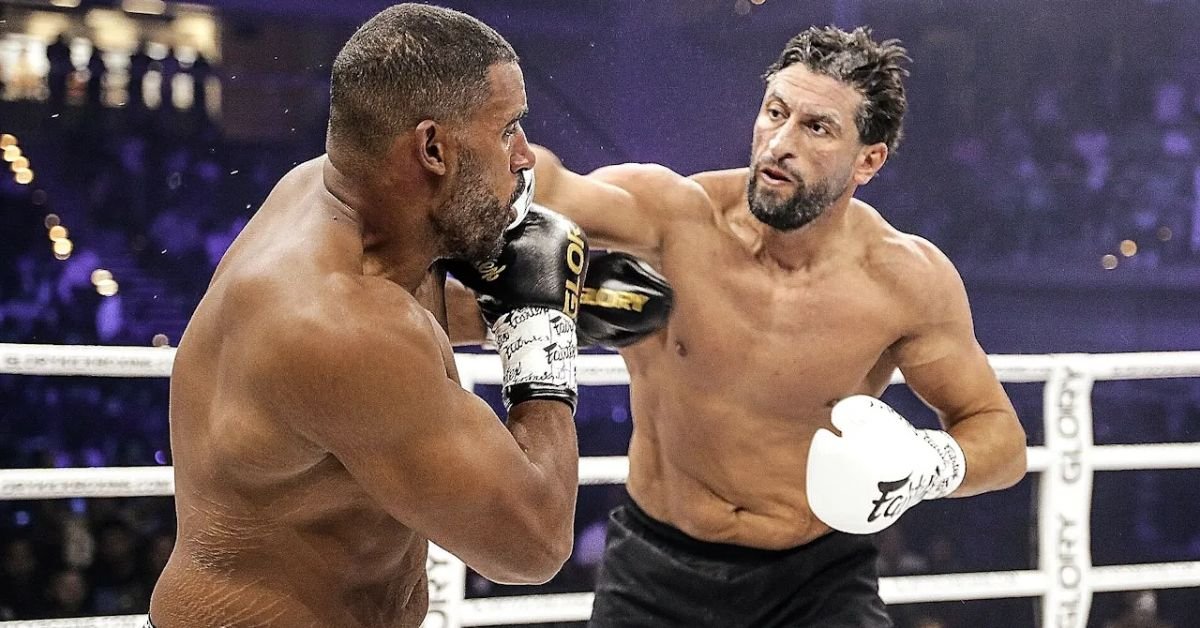The Antwerp Court of Appeal sentenced kickboxer Jamal Ben Saddik to 40 months in prison, with half the sentence suspended, for his involvement in laundering over 1.2 million euros through fraudulent schemes. This high-profile case, linked to a wider network led by entrepreneur Karim S., highlights the serious ramifications of money laundering in Belgium and the sports world. The court’s decision underscores the need for accountability among public figures, further emphasising the persistent issues of crime and corruption within popular sports.
Background on Jamal Ben Saddik
Jamal Ben Saddik, a notable figure in the kickboxing circuit, has faced a turbulent journey both in and out of the ring. Born in Morocco and raised in Belgium, Ben Saddik’s rise to fame in the GLORY kickboxing promotion has been marred by a series of legal troubles. His connection to criminal activities, particularly related to money laundering, has overshadowed his athletic accomplishments and raised questions about the integrity of his career.
His legal issues gained significant media traction after his links to a complex money laundering scheme surfaced. The involvement of his brother, Said and co-defendant Emad N. further highlights a troubling family legacy, raising concerns about the potential influence of organised crime in the world of kickboxing. This case sheds light not only on Ben Saddik’s personal life but also on the vulnerabilities within the sports industry to illicit activities.
Details of the Money Laundering Scheme
The investigation into the money laundering operations connected to Jamal Ben Saddik revealed a sophisticated network that exploited fraudulent employment contracts and real estate transactions to route illicit funds. The mastermind, Karim S., utilised intricate methods to disguise the origins of the money, presenting a facade of legitimacy that ultimately caught the attention of authorities in Belgium.
Over 1.2 million euros were funnelled through this scheme, with the trial unveiling the extensive reach of criminal enterprises across borders. The court’s meticulous findings indicated that significant amounts of cash—almost 508,000 euros—were hidden in creative ways, such as being stored in suitcases with false bottoms. This attention to detail during the investigation reflected the seriousness with which authorities approached money laundering, and it underscored the need for more stringent oversight in industries vulnerable to such breaches.
Court Proceedings and Sentencing
At the Antwerp Court of Appeal, the hearing of evidence brought forward significant implications not only for Jamal Ben Saddik but also for his family members involved in the case. The judges emphasised the profound social impact of money laundering on communities and described the actions of Ben Saddik and his co-defendants as detrimental and unrewarding. The legal ramifications included hefty fines and a suspended prison sentence—sentences that send a message against engaging in illegal financial schemes.
The court sentenced Jamal Ben Saddik to 40 months in prison, with half of the term suspended, while also imposing a fine of 40,000 euros. His brother, Said, and their accomplice Emad N. received fines of 24,000 euros and 16,000 euros, respectively. The judges’ decision to bar the defendants from serving as company directors due to their criminal records underscored the court’s commitment to discouraging criminal behaviour in business.
Broader Implications for the Kickboxing Community
The ramifications of this case extend beyond Jamal Ben Saddik’s circumstances, prompting critical discussions within the kickboxing and combat sports communities. Industry observers are voicing concerns regarding the prevalence of illicit activities in sports, specifically highlighting how easily young athletes can be lured into dangerous networks that jeopardise their careers. Ben Saddik’s situation serves as a cautionary tale about the potential consequences of associating with dubious figures.
Additionally, the significant media coverage surrounding this case could lay the groundwork for increased scrutiny of fighters and officials involved in the business aspects of combat sports. As organisations like GLORY strive to uphold their reputations, the spotlight on such legal matters may lead to stricter regulatory measures and promotions safeguarding against those with questionable backgrounds.
Continued Challenges and Career Prospects
Despite his legal troubles, Jamal Ben Saddik remains a prominent figure in the kickboxing scene. His storied career boasts thrilling matches against top competitors, and while the current legal challenges may sideline him temporarily, there is speculation regarding how he will navigate the aftermath once his sentence is served. Fans and analysts alike are keenly observing whether he can rehabilitate his image and make a comeback.
However, the path forward is fraught with obstacles, both due to his prior suspensions and ongoing controversies. Whether Ben Saddik can leverage his fighting credentials to reclaim a favourable position in the sports community amidst this turmoil remains to be seen. If he can distance himself from his recent activities and focus on his fighting prowess, there may still be hope for redemption in his professional career.
Final Thoughts on Jamal Ben Saddik’s Legal Narrative
Jamal Ben Saddik’s sentencing not only reflects his failings but also serves to highlight a systemic issue facing modern sports, where lucrative rewards may lead some to engage in illegal endeavours. With growing awareness of how intertwined combat sports can be with crime, stakeholders are urging for more comprehensive measures to prevent similar cases in the future. The case brings to light the pressing need for better governance and vigilance within athletic organisations.
As the dust settles on this legal battle, the ripple effects will likely be felt for years to come. For Jamal Ben Saddik, his ability to rise above these challenges and focus on his kickboxing career could define his legacy, shaping how he is remembered in the annals of combat sports history.
| Key Point | Details |
|---|---|
| Defendant | Jamal Ben Saddik, along with Said Ben Saddik and Emad N. |
| Charges | Money laundering and forgery involving over 1.2 million euros. |
| Court & Sentence | Antwerp Court of Appeal sentenced Jamal to 40 months in prison (20 months suspended). |
| Laundered Funds Seized | Confiscated 1.23 million euros and an additional 508,000 euros in cash were discovered in raids. |
| Fines Imposed | Jamal fined 40,000 euros, Said 24,000 euros, Emad 16,000 euros. |
| Criminal Background | All defendants had prior convictions. Jamal was previously under investigation and involved in previous legal issues. |
| Karim S. Role | Karim S., a previously sentenced entrepreneur, orchestrated the laundering scheme originating in the Netherlands. |
| Media Attention | The case gained significant media coverage in Belgium due to the involvement of a public figure. |
Jamal Ben Saddik’s 40-month prison sentence for money laundering highlights the serious consequences of criminal activity, particularly within sports. This case raises questions about the integrity of athletes and the potential impact of illicit activities on their careers. What safeguards can be implemented to prevent such issues in the future?
Frequently Asked Questions
What was Jamal Ben Saddik sentenced for?
Jamal Ben Saddik was sentenced to 40 months in prison, with half of the sentence suspended, for his involvement in money laundering and forgery related to over 1.2 million euros in criminal proceeds. The court found him complicit in a scheme that involved fraudulent employment contracts and real estate transactions.
What are the details of the money laundering scheme?
The laundering scheme, which originated in the Netherlands, involved entrepreneur Karim S., who funnelled illicit funds through false employment contracts and fraudulent transactions, allowing the money to appear legitimate. As key recipients, Ben Saddik and his co-defendants received significant cash, amounting to over 508,000 euros, discovered during police raids.
What penalties did the defendants face aside from prison time?
In addition to prison sentences, all three defendants were fined, with Jamal Ben Saddik receiving a fine of 40,000 euros. They were also barred from serving as company directors due to their previous criminal records and involvement in the money laundering operation.
How has Jamal Ben Saddik’s legal history impacted his career in kickboxing?
Jamal Ben Saddik has faced several legal issues, including a previous imprisonment related to the Sky ECC investigation and recent accusations of kidnapping and assault. Despite these challenges and prior doping suspensions, he remains a notable figure in GLORY kickboxing with a history of high-profile matches.
Who is Karim S., and what was his role in this case?
Karim S. is an entrepreneur and former soccer coach who was the mastermind behind the money laundering network, previously sentenced to 42 months in prison for laundering over 2.5 million euros. His scheme involved recruiting individuals with suspicious backgrounds to facilitate the laundering of funds through forged documents and fraudulent contracts.







